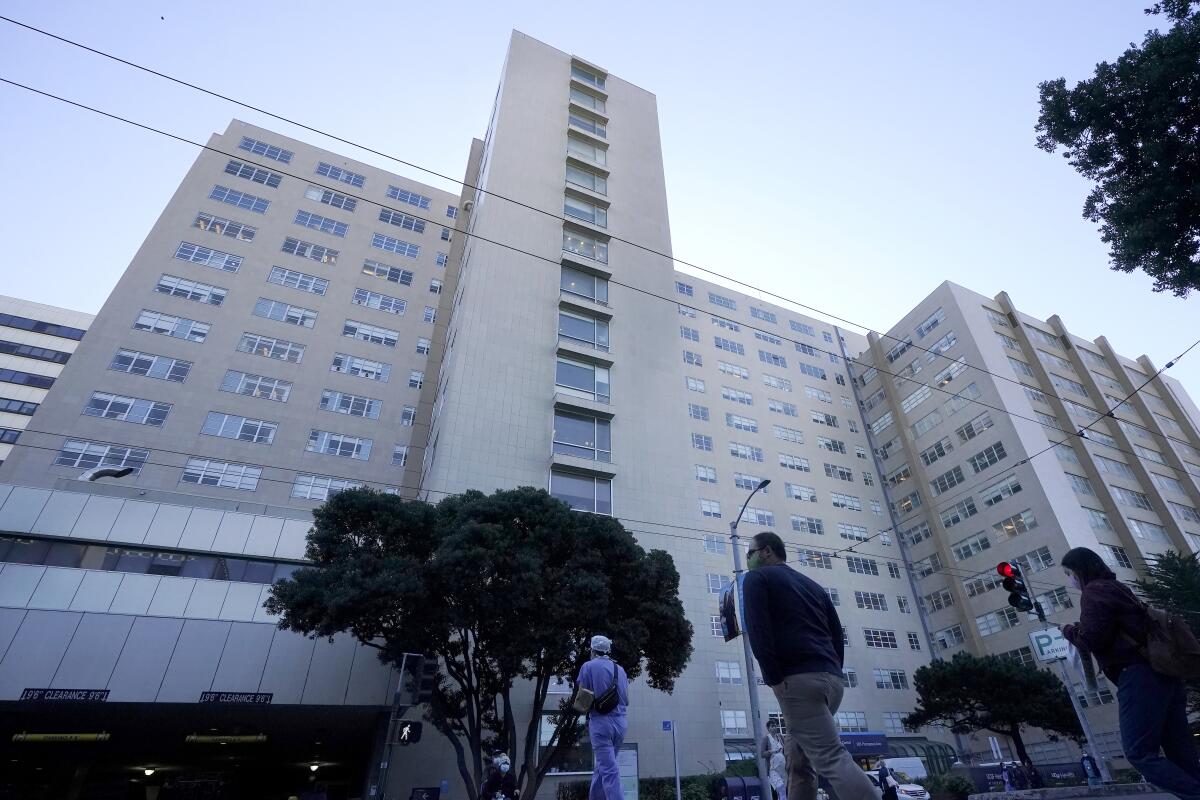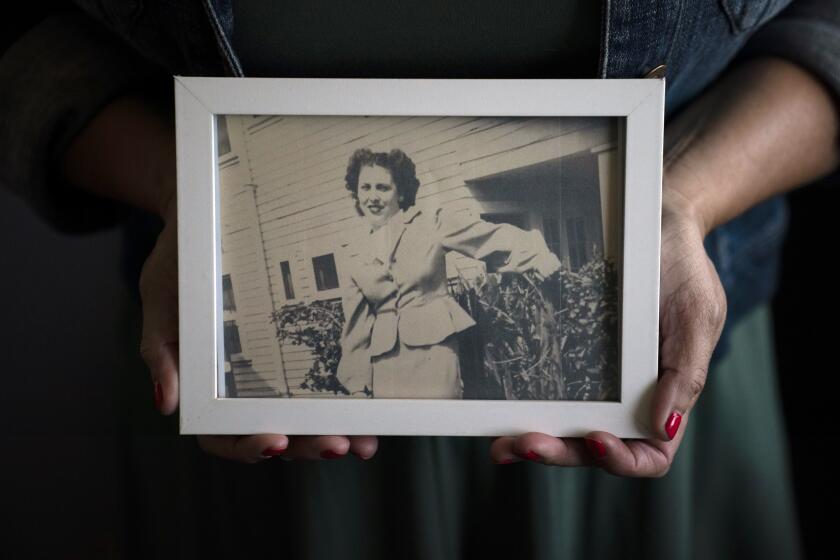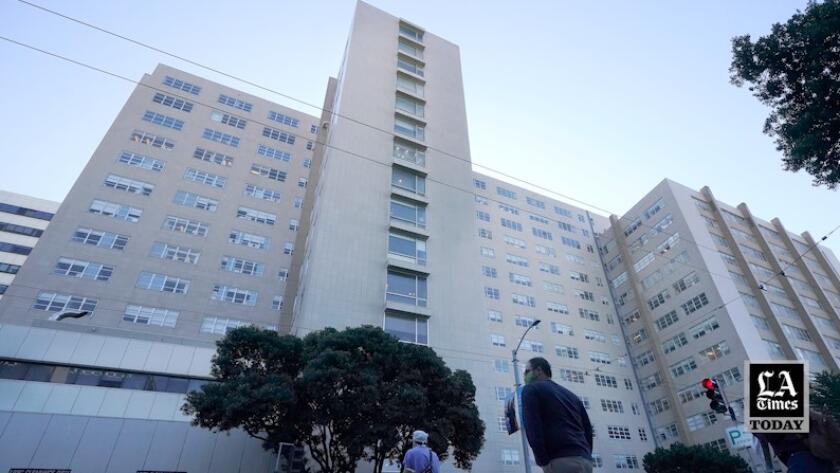Reckoning with UCSF’s dark history of unethical medical experiments on inmates

- Share via
It’s shameful that it took decades for UC San Francisco to acknowledge and publicly apologize for faculty members who conducted unethical experiments on hundreds of men incarcerated at a medical facility in Northern California. Only now has the institution begun reckoning with its dark history of medical experimentation on inmates.
A university investigation, started in 2022, found that two faculty members violated medical research ethics when they conducted invasive dermatological experiments on 2,600 men incarcerated at the California Medical Facility in Vacaville during the 1960s and 1970s.
UCSF issued a public apology last month for the harms it caused the men after reviewing the findings of an investigation conducted by the Program for Historical Reconciliation, which the university created to examine claims of ethical wrongdoing in the past. It was the group’s first investigation, which focused on experiments conducted by Dr. Howard Maibach, a current faculty member, and Dr. William Epstein, a former dermatology chair who died in 2006.
The men conducted experiments on inmates at the prison hospital that included testing of pesticides and herbicides applied directly on the skin and intravenously, and placing small cages with mosquitoes on or near inmates’ skin to determine the “attractiveness” of humans to mosquitoes.
Researchers pored over more than 7,000 documents, including journal articles co-authored by Maibach and archival materials, to assess whether inmates were properly informed about the risks involved and gave informed consent. The investigation found there was no documentation of informed consent for most experiments, but Maibach contests those findings.
Editorial: Paying $25,000 to every living forced-sterilization victim is the least California can do
California performed a third of the entire nation’s forced sterilizations. Reparations come so late that only about 600 survive to receive the money.
UCSF knew its research was questionable as early as 1973. An article that year in the Atlantic contained a description of experiments conducted on California Medical Facility inmates, which included an interview with an inmate who said the tests caused burns. Some inmates became so ill that they lost significant weight or had to be hospitalized. The article questioned the role played by the Solano Institute for Medical and Psychiatric Research, a nonprofit that authorized medical research on inmates at the California Medical Facility.
Though various institutions had been conducting medical experiments on inmates for years, the practice came under scrutiny decades ago. Governmental institutions were developing guidelines to protect these vulnerable communities and questioning whether inmates were able to provide informed consent. In 1977, California halted all research on inmates in state prisons, a year after the federal government did the same. Today, the American Medical Assn. Code of Medical Ethics prohibits experimentation on inmates, except under very limited circumstances.
In response to the investigation, Maibach issued a letter expressing regret for conducting research that doesn’t meet today’s ethical standards, but offered no apology to former inmates who served as his test subjects. Maibach, a widely cited and celebrated dermatologist, won’t be subject to an academic or employment investigation at UCSF due to the school’s statute of limitations, according to the dermatology chair.
As part of the vile eugenics movement that swept the country during the first half of the 20th century, more than 60,000 women and men were sterilized in state homes and hospitals to prevent them from passing on what were considered defective genes.
But he wasn’t the only doctor experimenting on vulnerable populations. Many children in state hospitals and orphanages during the Cold War were subject to experiments that exposed them to hepatitis, meningitis, ringworm, influenza, measles, mumps and polio. The Tuskegee study studied the progression of syphilis in Black men without informing them about their diagnosis or providing treatment when it became available. Many of our nation’s most vaunted institutions endorsed and benefited from such research.
UCSF requested the investigation after finding out that Maibach and Epstein long ago trained with Dr. Albert Kligman, a University of Pennsylvania faculty member whose experiments on mostly Black inmates at Holmesburg Prison in Philadelphia for more than two decades exposed them to dangerous chemicals, including viruses, fungi, LSD and dioxin, a carcinogen used in Agent Orange. The experiments led to the invention of the acne medication Retin-A and anti-aging medication Renova. Just last week, the College of Physicians of Philadelphia issued an apology and rescinded a lifetime achievement award the organization gave Kligman, who died in 2010.
UCSF has taken important first steps in acknowledging and apologizing for the harms its researchers caused the inmates and their families. Now, it should move expeditiously in adopting all the recommendations made by researchers at the Program for Historical Reconciliation. This includes developing an oral history of people subjected to research at the California Medical Facility from 1955 to 1977, and conducting an investigation of the Solano Institute for Medical and Psychiatric Research.
It’s imperative that the institution continue the necessary work of educating the medical community about this painful chapter of medical experimentation. Too many experiments and forced medical procedures have been conducted on vulnerable populations to think it can’t happen again. It’s also important to fully account for past wrongdoings to begin rebuilding trust from these communities. UCSF needs to find former inmates or their survivors to uncover specific harms caused by the experimentation and consider offering reparations.
For years, the medical community conducted experiments on vulnerable communities with impunity. Though it has taken UCSF too long to offer its apology, it’s never too late to try to make amends.
- Share via
Watch L.A. Times Today at 7 p.m. on Spectrum News 1 on Channel 1 or live stream on the Spectrum News App. Palos Verdes Peninsula and Orange County viewers can watch on Cox Systems on channel 99.
More to Read
A cure for the common opinion
Get thought-provoking perspectives with our weekly newsletter.
You may occasionally receive promotional content from the Los Angeles Times.








